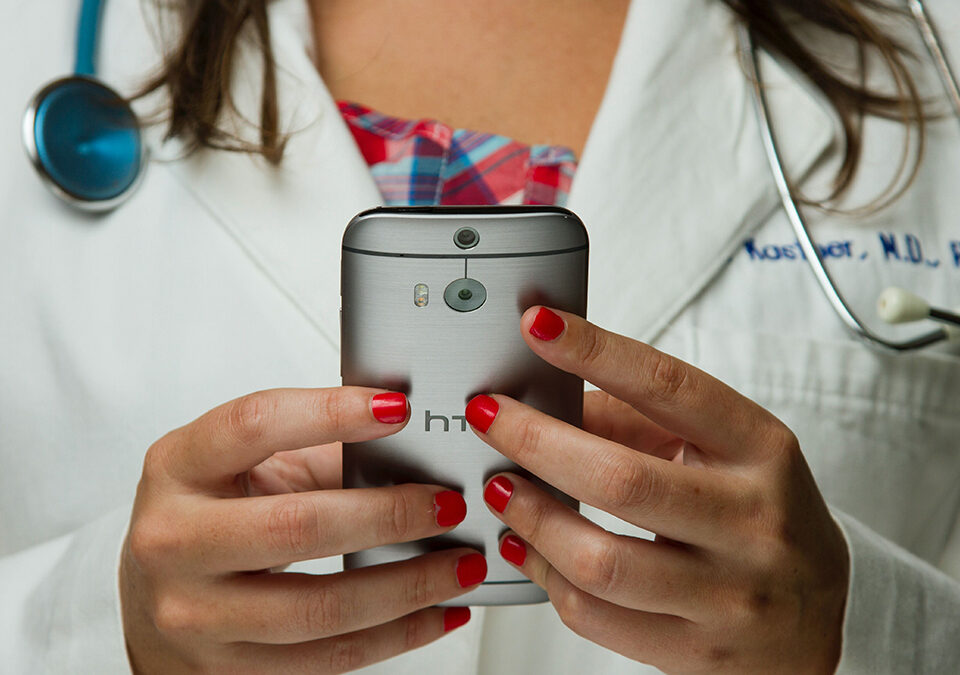
6 Features Your Healthcare Website Needs Today
March 18, 20226 Healthcare Advertising and Marketing Trends to Watch
As the digital world continues to penetrate the lives of consumers daily, catering to the interests of consumers becomes increasingly important. More and more people do not want to deal with health care providers, especially when there are alternative options available on the market. For example, consumers prefer to take a covid test at home rather than go to a drive-through test site. This shift in focus creates a need for healthcare companies to reeducate patients on proper health care practices.
That’s where healthcare advertising comes in. Healthcare companies are in need of marketing just like any other company to educate and retain their patients. Digital healthcare marketing can elevate your healthcare advertising strategy and bring your business to the next level. Healthcare Marketing Services by CTRL+ALT Digital, a top healthcare digital marketing agency, can help determine what your marketing strategy needs to make the most impact. Check out these six healthcare advertising trends to watch in the coming months.
User Experience
When it comes to digital healthcare marketing, the user experience on your website is of the utmost importance. Most consumers will not use a website if the page takes too long to load or the navigation is confusing. As a matter of fact, website user experience is one of the key factors that customers consider when choosing a healthcare provider.
Healthcare providers often make the mistake of making their website purely informative while lacking functionality. The problem is, consumers are approaching healthcare the same way they approach any other online transaction. This means that they are judging the credibility of your company based on the functionality and overall quality of your website design.
Factors that impact user experience include:
- Overall site structure and navigation
- Message
- Content
- Overall site structure and navigation
- Message
- Content
- Design
- Ease of use on desktop and mobile devices
- Consistent marketing content
Healthcare marketing consultants can help you identify areas of weakness in your website and create a plan of action to improve usability for your target audience.
Social Proof
Social proof is taking the marketing industry by storm in recent years as consumers place increasingly strong stock in testimonials over marketing claims. In the past, online reviews had a bad reputation for being fake. However, as the digital age has evolved, consumers have transitioned to using trustworthy review sites to gauge a company's reputation.
The most common forms of social proof that should be integrated into your healthcare advertising campaign include:
- Ratings from trusted review sites
- Patient testimonials
- Q and A segments
- Interviews
- Community involvement
- Social media engagement
Promote Telehealth
A few short years ago, widespread telehealth was a dream for the future. However, the pandemic accelerated that dream into reality. There was a brief question of whether or not telehealth was here to stay or not. Experts agree that the answer is a resounding yes - telehealth is permanent and only growing in both demand and usability.
It is vital to communicate telehealth options to potential patients in your digital healthcare marketing strategy. While there was a massive increase in telehealth visits during the peak of the pandemic for obvious reasons, a staggering 88% of patients continue to prefer telehealth for non-emergency visits over in-person visits. This is largely due to the fact that telehealth caters to the modern family by providing convenience and what many describe as more personalized experiences.
Consumers want to know what they will get out of a service at first glance. By promoting telehealth as a service, you can provide patients with easy access to all the information they need to make an informed decision. The top considerations consumers look at when choosing a telehealth provider include HIPAA-compliant live chat, two-way texting, digital appointment reminders, and AI-powered virtual assistants.
Personalization
According to Salesforce, interest in personalized marketing experiences has increased by 7% since 2020 to a soaring 92%. In the healthcare industry, personalization has to be accompanied by compliance with healthcare privacy laws.
One option to provide personalization in healthcare is to alter patient portals and mobile applications to display relevant content to each patient. This content might include treatment information specific to a patient's condition or recommendations for relevant services based on their profile.
In addition, you can tailor content to specific audiences that can drive traffic and improve your overall healthcare advertising campaign through personalized SEO. For example, if you want to target patients with skin conditions that are looking for over-the-counter treatments, you might start with a popular keyword for your chosen market and guide the journey from there. A healthcare digital marketing agency can help you determine the best keywords to use to get started such as “best eczema cream”. Once you incorporate that keyword into your content you can link several other types of related content to that page and expand from there. This allows your customers to choose their own content while driving traffic to your website and maintaining privacy compliance.
Consumer-Centric Content
In recent years, there has been a shift in the attitude of consumers when it comes to healthcare and the pandemic has only helped in accelerating this shift. More and more, consumers are looking at healthcare selection and management the same way they look at any other online purchase. This attitude has been driven by increasing deductible plans and new technologies in the industry. This shift means that consumers are looking for content that they can easily navigate and understand rather than endless white pages or scientific research studies.
Communicate Safety Precautions and Organization
Finally, the pandemic brought to light many concerns patients have regarding the organization of healthcare facilities and safety precautions when it comes to the spread of contagions. In 2022, the communication of Covid safety precautions, check-in procedures, and cleaning procedures will continue to be top of mind for consumers.
Healthcare Marketing Services by CTRL+ALT Digital
These healthcare advertising trends are just the tip of the iceberg for optimizing your healthcare digital marketing campaign. Contact our team to talk with one of our experienced healthcare marketing consultants today to see what we can do to improve your healthcare advertising strategy.




